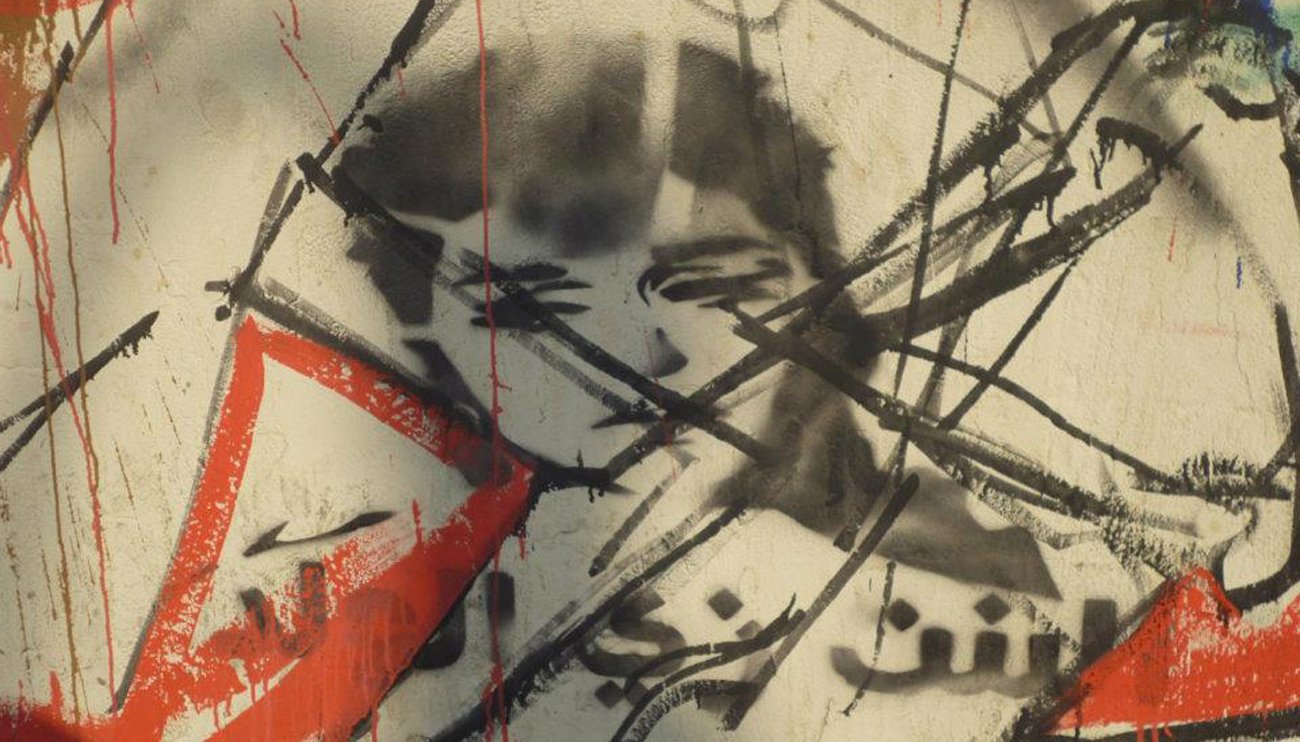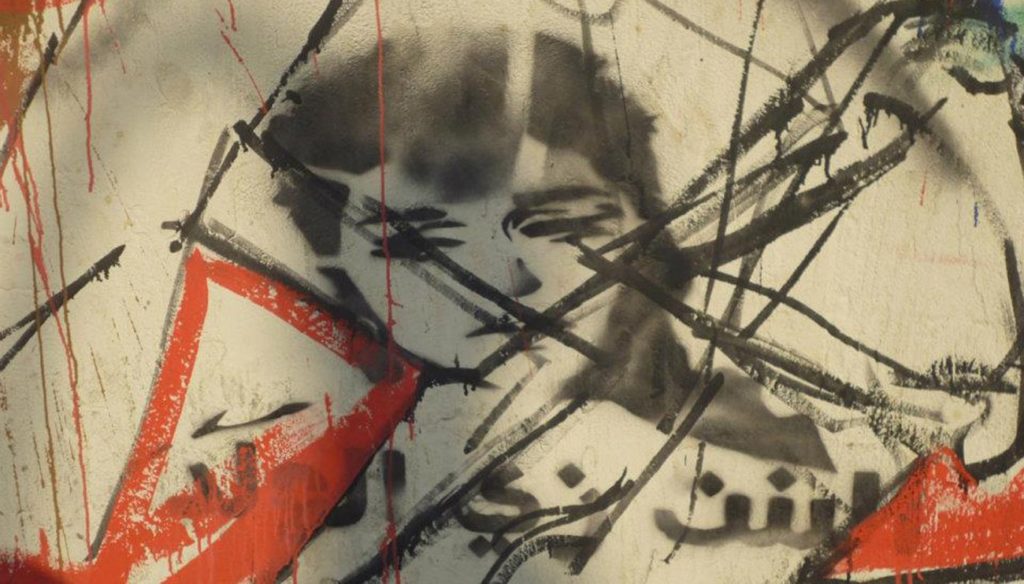#MeToo: My Stories of Sexual Harassment
by Salma Jamal from Jordan
(Translated from the original Arabic version. Original publication date: 17 October 2017)
I can’t remember how old I was when I first heard my mother’s story of her cousins and the loss of their only brother. I do not recall many details, but I remember that my mother repeated the story to us more than once and that it stayed with me throughout my adolescence and early youth.
There were five sisters and one brother. One of them was named Salwa, who was returning from the market when a young man harassed her. She scoffed at him. (We can imagine the potential reactions from the harasser, which would certainly not include shame, silence or apology). Salwa returned home angry and distressed and told her brother what happened. He went out to find the harasser in the market and teach him a lesson. The story ends with the harasser stabbing Salwa’s brother with a knife and killing him.
The grief and sorrow accompanied the sisters throughout their lives – how were they not the “cause” of their brother’s death?
I am not about to dismantle the complex layers of tragedies of this story and the assumptions on which these layers were built. But the lesson my sister and I learned when resisting harassment was this: “Act like you do not hear it.”
This is, without a doubt, what I have done for years: pretending that I had not heard, seen, or felt the harassment.
* * *
I was 14 years old when Jordan won the gold medal in football at the Pan Arab Games in July 1997. My sister and I watched the game at home and when it was over, my uncle picked us up in his car so that we could join the celebrations that filled the streets.
We sat on the edges of car windows chanting as my uncle drove through crowded streets with celebratory music and horn-honking. From time to time, groups of guys stopped passing cars and started dancing Dabke in the middle of the street. I was enjoying a strange feeling of freedom – with the breeze in my hair and face – amidst a rare opportunity for thousands of people to share a common space and collective joy. But that elation did not last long, as a hand pulled me out from among the bodies that were pushing around the car and pinched my waist.
My eyes met my sister’s and we did not need words to understand what had happened. But we had decided, “We’ll ignore it and tell no one about it.”
When we returned home, my father asked, “How was it out there? Not a lot of hooligans?” My uncle answered, “Sports really stir the spirit. The celebrations were amazing.” Only God knew the truth.
* * *
During my first year at the University of Jordan, my female colleagues and I heard many warnings about one of the professors. We heard he was a womaniser who would invente any pretext to invite female students into his office. In one of his lectures, I was sitting next to my friend in the back of the class when we whispered something to each other. The professor screamed suddenly, “Out! You and her, out! Don’t come back to this lecture until the end of the semester!”
“But, Professor…”
“Out!”
We left and waited for him at the door until the end of the lecture to apologise to him, but he refused to listen to us and said, “Come to my office.”
This is the game, then. There were many discussions between us and some of our guy friends about the most appropriate way to deal with the issue. One of our friends suggested that he come with us to the professor’s office, but we decided that this might provoke him to fail all three of us. It was inevitable: we would have to go and apologise for what we did. He could not cross any boundaries as long as we were together.
When we entered his office, his face suddenly transformed into smile that makes me nauseous when I recall it. The irritability that we encountered in the lecture dissipated and was replaced with phrases like, “You made me mad? Enough, it’s nothing, I forgive you. Anything you need, just come to my office.”
Our friend was at the end of the corridor waiting for us to come out. Indeed, the matter took only a few minutes, but in my professor’s office it felt like ages. While the worst did not happen, I left the office fighting a violent desire to cry.
Could I have behaved differently? What if I had refused to go to his office? Would he have failed me? And what if I had failed? The problem is that he was the only professor who taught that subject. Should I have delayed graduation to uphold some principle? Does this topic deserve to be so complex?
I told my story to a friend when the “Me Too” campaign swept over social media, and said that I wished I could write the mention the name of the professor in this article. He told me that this would be slander. I asked myself, “If someone commits theft, is it slander to call him a thief?”
True, my friend said, but you cannot prove anything against this professor. Just saying, “come to my office” does not mean anything. In the end, “nothing happened,” right?
Yes, “something happened.” There are men who make women feel uncomfortable with their eyes, suspicious smiles, the way they use their power, and the pleasure that appears on their faces when they trap you like a mouse in a corner. Every woman who has experienced this knows perfectly well that it is not “nothing.”
* * *
A final story – not because I don’t have other experiences of harassment – but because it was the first story that came to mind when I decided to post “Me Too” on Facebook.
I had parked my car on the street corner, a few metres from the town centre where I was going to attend a seminar. My plan was to go home before the seminar to change out of the skirt I was wearing into loose pants, but I did not have enough time. My skirt was relatively long, ending just a few centimetres before the ankle. Why do I apologetically describe what I was wearing? Why do I think that my clothes had something to do with what happened next?
There was just one elderly man in the street sitting on a chair outside the front door of his house. I had only walked a few steps when I felt a slap on my behind. I turned, to see behind me a child no more than seven years old carrying a shoe in his hand.
I held my tongue and stood stunned for a fraction of a second that was long enough for the child to run quickly in the opposite direction. The old man grew tired, and without moving more than his lips he said, “Shame, son.”
I turned and quickened my pace towards the centre, feeling conflicting emotions of both great anger and self-blame. Why didn’t I grab his collar, punch him and teach him a lesson he would not forget? Isn’t that what he deserved? He was a child of seven. If he does this to a woman in the street at seven, what will he do at 14? But why did I not go home to change my clothes? Did I not know I would be going to a “popular” neighbourhood? Am I a naïve orientalist who does not respect my community? But what respect does this society give to women for being female? Is it conceivable to reach this degree of normalisation of the violation of my dignity as a woman and my right to exist in a space – public or private – without feeling the power imposed on my body by males?
* * *
The world needed the scandal of famous Hollywood producer Harvey Weinstein, who faces multiple charges of harassment and sexual assault after the New York Times published a lengthy investigation of him, to launch a global, cross-border feminist solidarity campaign where women share their personal stories and experiences with harassment.
The campaign began with a simple invitation to every woman who was subjected to any kind of sexual harassment to post #MeToo. The campaign spread in several languages, including Arabic with the #AnaKaman hashtag. But, as Jessica Valente wrote in an article for The Guardian, “It is an important step for victims of harassment to come forward and break the fear-barrier of participating, but we still have to expose the harassers.”
For my part, I recently decided to stop ignoring harassment in the street. I decided to threaten to call the police and tell the harasser that the Jordanian Penal Code says he can be sent to prison for verbal harassment. But I have not carried out my threat so far, and I do not know if I will. I did not have the courage to share the story of the seven-year-old on Facebook and do not want to write this article under my real name. Can I really dare to put myself and my words under the microscope in order to teach the harasser a lesson?
The problem of harassment, like other problems of inequality and the violation of freedoms and rights in the world, is not an individual problem that can be faced with a little “empowerment” and self-confidence, nor does it have a monopoly on any particular society. However, the sum of our personal battles as individuals is inseparable from our war against this system. We cannot underestimate the importance of using all possible means to restore the safe spaces that will enable us to continue the struggle against the power structure and power relations of society.





